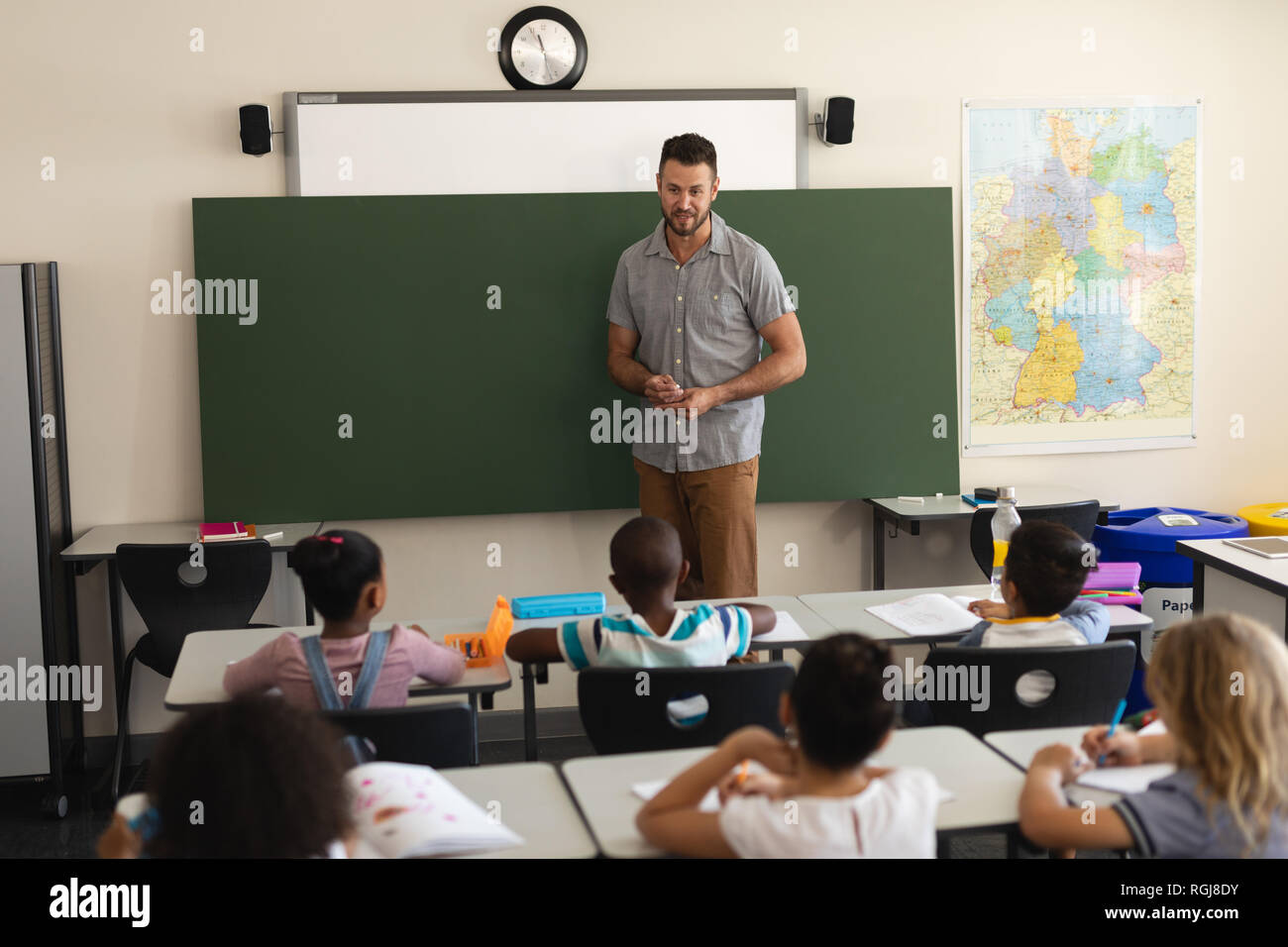Unlock Your Child’s Potential with Primary Science Tuition Singapore
Unlock Your Child’s Potential with Primary Science Tuition Singapore
Blog Article
Discover the Important Advantages of Understanding Main Scientific Research for Young Learners
The value of main science education and learning for young learners extends far past plain expertise acquisition; it serves as an essential pillar in developing crucial abilities such as essential reasoning, analytical, and imagination. Engaging with scientific principles through interactive and inquiry-based tasks not only cultivates curiosity yet likewise lays the groundwork for resistant, positive students.
Enhancing Important Believing Skills
Cultivating important believing skills in young students is necessary for their cognitive advancement and future scholastic success. Vital reasoning allows kids to assess info, review proof, and make notified choices, which are essential skills in today's information-rich culture. By engaging in clinical inquiry, young learners can boost these abilities as they check out concepts through thinking, trial and error, and observation.
In key science education, teachers can promote vital reasoning by encouraging trainees to ask concerns, create hypotheses, and perform experiments. This hands-on technique permits children to practice analytical and establish sensible reasoning abilities. For instance, when pupils examine the residential properties of products or the concepts of activity, they learn to assess their findings seriously and draw conclusions based on evidence.
Additionally, discussions and collaborative projects can promote crucial thinking by providing opportunities for students to express their thoughts, obstacle presumptions, and consider varied viewpoints. By developing a supportive environment that values questions and reflection, educators can nurture crucial thinking skills that equip young learners to become independent thinkers and long-lasting learners. Eventually, enhancing these abilities lays a robust structure for their future academic endeavors and individual development.
Cultivating Interest and Expedition

Primary science education supplies a structured atmosphere where young learners can explore various sensations via hands-on experiments and monitorings. By permitting them to connect with materials and involve in inquiry-based understanding, instructors develop chances for children to create theories, examine their concepts, and attract verdicts. Such experiences nurture a sense of wonder and exhilaration about scientific research.

Structure Self-confidence in Problem Addressing
Building self-confidence in analytical is a crucial element of primary scientific research education that equips young learners to approach challenges with strength and creative thinking - primary science tuition Singapore. They create essential skills in crucial thinking and analysis when kids are motivated to involve with clinical ideas via hands-on activities and inquiry-based understanding. This procedure not only improves their understanding of clinical principles but also fosters a sense of ownership over their discovering
To construct self-confidence, instructors must develop a supportive environment where mistakes are considered as chances for growth instead of failings. This urges trainees to take risks and check out different options to troubles. By providing scaffolding and guidance, instructors can aid trainees browse complicated tasks, progressively increasing their independence in analytical learn this here now circumstances.
Additionally, joint understanding experiences, such as group tasks or experiments, can further boost pupils' confidence as they learn to express their ideas and listen to others' viewpoints. These interactions support social abilities and reinforce the idea that problem-solving is typically a collective undertaking. Eventually, cultivating confidence in analytical prepares young learners for future academic challenges and furnishes them with the tools essential for lifelong discovering.
Motivating Imagination and Advancement
In the world of primary scientific research education and learning, urging imagination and advancement is necessary for cultivating a dynamic understanding environment. By fostering a culture where young students can discover ideas and experiment openly, educators help trainees develop critical thinking abilities and a passion for exploration. Creativity in scientific research urges kids to ask concerns, create hypotheses, and participate in hands-on tasks that boost their creative imagination.
Integrating open-ended tasks and inquiry-based understanding into the educational program permits trainees to share their special viewpoints and solutions. For example, when entrusted with addressing a trouble related to their atmosphere, students can brainstorm numerous techniques, bring about inventive outcomes that showcase their originality. This not just deepens their understanding of clinical concepts however also imparts a feeling of ownership over their learning process.
Moreover, innovative scientific research education supports collaboration amongst peers, as pupils commonly share concepts and improve one another's insights - primary science tuition Singapore. This joint spirit advertises not just innovation however also important social skills. Thus, by focusing on creativity and advancement in main science education and learning, we equip young learners to assume critically, welcome challenges, and visualize possibilities, laying a strong foundation for long-lasting learning and exploration
Getting Ready For Future Learning Challenges
Young students' capability to look these up browse future knowing challenges rests on a strong structure in primary science education. This foundational understanding gears up pupils with essential assuming abilities and a systematic strategy to problem-solving, essential for taking on complex concerns in an ever-evolving world. Key science promotes inquiry-based discovering, motivating students to ask inquiries, check out theories, and participate in hands-on experiments.
As they develop these skills, students become proficient at evaluating data, identifying patterns, and drawing notified conclusions. Such expertises are important not only in scientific areas yet additionally in technology, engineering, and mathematics (STEM), where interdisciplinary understanding is increasingly vital.
Additionally, main scientific research education cultivates a sense of inquisitiveness and durability in young learners, allowing them to watch challenges as opportunities for development. As they experience and get rid of obstacles in why not check here their clinical expeditions, they develop confidence in their ability to introduce and adjust.
Eventually, a solid foundation in key scientific research not only prepares young students for academic pursuits but additionally equips them with the tools required for long-lasting learning and flexibility in a quickly altering international landscape. By buying key scientific research education, we are purchasing the future potential of our students.
Verdict
Recognizing main scientific research is critical for young learners, as it cultivates vital reasoning, interest, and creativity. Eventually, the advantages of key science education and learning prepare children for future academic searches and instill lifelong discovering practices necessary for flourishing in an ever-evolving world.
The value of primary science education and learning for young learners extends far past plain knowledge purchase; it offers as a fundamental pillar in creating essential skills such as important reasoning, problem-solving, and imagination. By developing an encouraging environment that values questions and representation, educators can nurture vital assuming abilities that empower young learners to end up being independent thinkers and long-lasting students. Thus, by prioritizing creativity and technology in key scientific research education and learning, we encourage young students to assume seriously, welcome obstacles, and imagine opportunities, laying a solid structure for lifelong knowing and exploration.
Young students' ability to browse future understanding challenges pivots on a strong foundation in primary scientific research education and learning.Comprehending main scientific research is essential for young learners, as it cultivates critical reasoning, inquisitiveness, and creative thinking.
Report this page